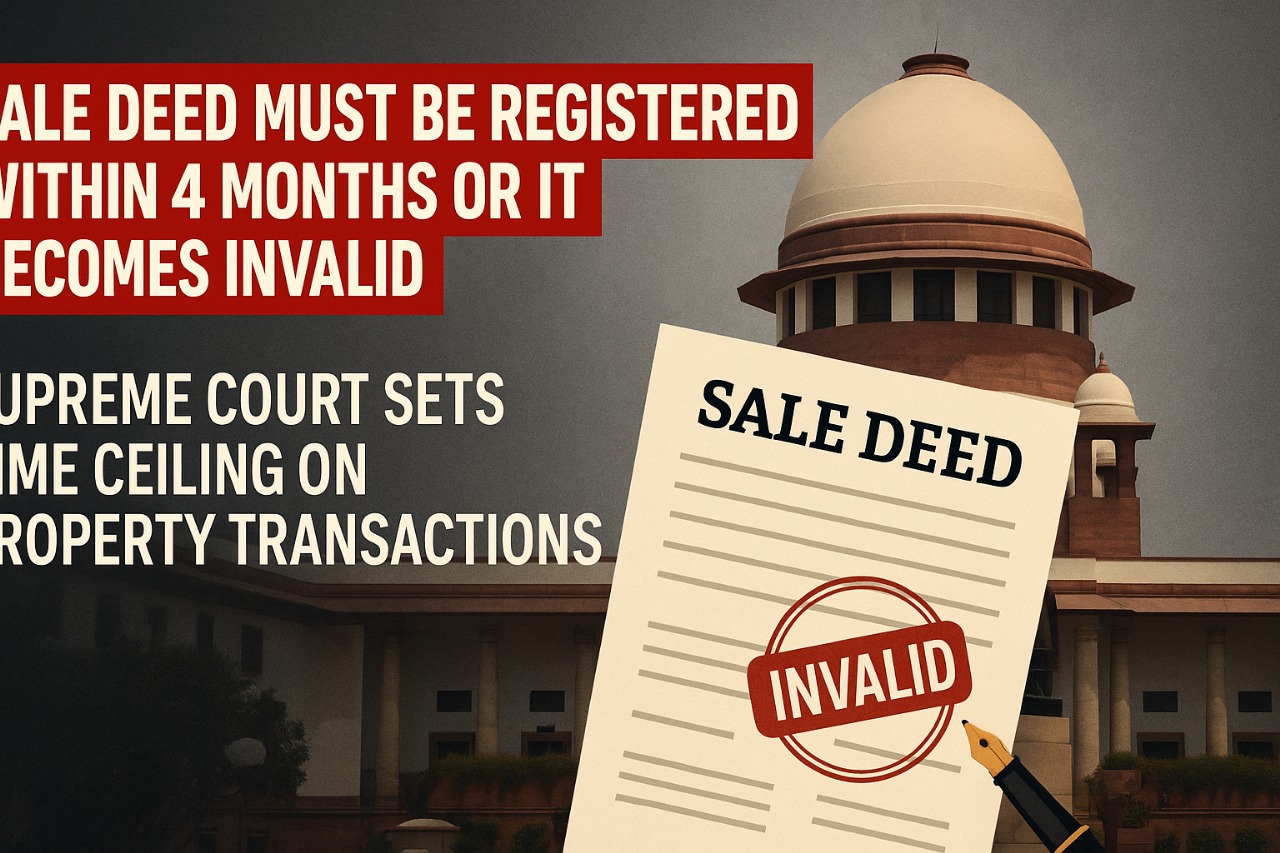Introduction
In a landmark judgment to enhance the sanctity of property deals, the Supreme Court of India has ruled that a sale deed has to be registered within four months from the date of execution, or else it would be rendered legally unenforceable. Thus, this ruling supports the statutory period specified under Section 23 of the Registration Act, 1908, and sheds light on the legal enforceability of property transfers.
Background
The dispute arose regarding a dispute where a party tried to stake claim over a property in terms of a sale deed performed years ago but registered after the period provided by statute. The question before the Court was whether such a deed, although registered late, can be treated as legally valid and bestow rights over ownership. The High Court had adopted a benevolent approach by allowing delayed registration in exceptional situations. However, the Supreme Court disagreed and took a stricter interpretation of the law.
Legal Reasoning
The Supreme Court stressed that the prompt registration of documents is a statutory obligation rather than a mere formal routine. According to Section 23 of the Registration Act, there is a four-month period from the date of execution during which any sale deed must be registered. There are few provisions relating to condoning the delay under Section 25, but those are strictly controlled and call for real, tangible cause.
The Court noted:
“A sale deed made ages back but registered later without lawful approval or appropriate filing under Section 25 cannot be said to be valid. It does not pass the test of enforceability in law.”
This statement is intended to safeguard the sanctity of land records and help check fraudulent or retrospective transactions that find their way into causing manipulation of property ownership or defying scrutiny in law.
Impact and Implications
The ruling sends a powerful message to buyers, sellers, and real estate practitioners about the irrevocable legal timelines of property transactions. It underscores the importance of prudence and prompt compliance with statutory procedures. The ruling will have an effect on cases where parties use outdated, unregistered, or tardily registered sale deeds to establish rights or title to immovable property.
Additionally, the judgment is anticipated to simplify the process of law in property cases by categorically declaring any unregistered document invalid that has not been registered within the stipulated time, unless specifically exempted under condonable clauses.
Conclusion
This judgment by the Supreme Court reaffirms the general principle that property document registration is not optional but mandatory by law. The parties to a property transaction are obligated to be diligent, and any delay in following the timelines of registration will now have severe legal repercussions. By so doing, the Court has given clarity to litigants as well as the real estate sector, strengthening the legal framework that governs the ownership of land and the title thereof in India.
About the Author
Agnimitra is a law student at the Department of Law, Hazra Campus, Calcutta University, Kolkata, with a growing passion for legal writing and research. Deeply interested in Intellectual Property Law, International Law, and issues related to Women and Child Safety, Agnimitra enjoys exploring how the law modernizes itself to the changing times of society. Whether it’s through writing articles or diving into legal debates, Agnimitra is always eager to understand and share the evolving nuances of the legal world.

